 |
| |
| |
| President Donald Trump will join the list of Commanders-in-chief who were denied a second term after running for reelection. |
| Former vice president Joe Biden was projected to defeat President Trump, thus making Trump the tenth incumbent to become a one-term U.S. president. |
| From John Adams to George H.W. Bush, ten Commanders-in-Chief throughout U.S. history have run for re-election and lost. |
| Let's take a look into the past — at U.S. presidents who didn't get a second four years because they were denied by voters in the general election. |
| Voting 2020 live updates: Long lines plague New York; Election Day forecast shows good weather across US; Zeta storm |
George H.W. Bush |
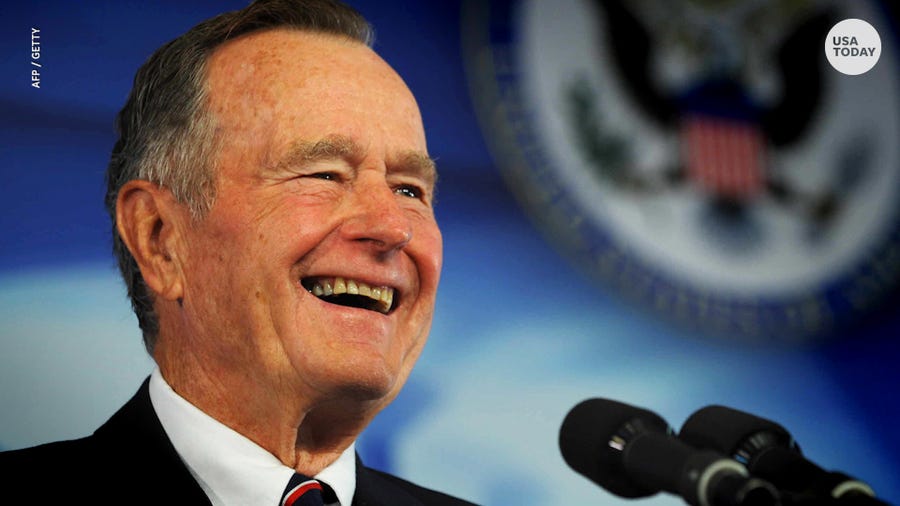 | | George H.W. Bush | | AFP / GETTY | |
| The most recent one-term president was George H.W. Bush. The Republican incumbent served as the 41st president of the United States from 1989 to 1993, but lost re-election to Democrat William (Bill) Clinton, who went on to complete two terms. |
| Bush's White House biography attributes his defeat to the country's "discontent at home from a faltering economy, rising violence in inner cities, and continued high deficit spending." |
Jimmy Carter |
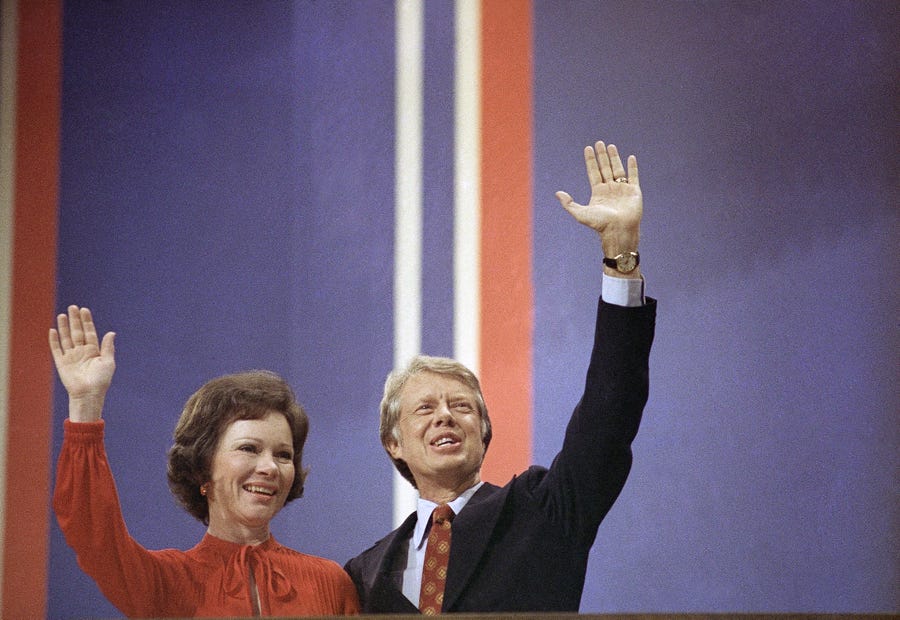 | | Jimmy Carter with Rosalynn Carter at the National Convention in Madison Square Garden in New York on July 15, 1976. | | AP Photo | |
| The 39th president of the United States, Democrat James (Jimmy) Carter, served from 1977 to 1981. He lost his re-election campaign to Republican Ronald Reagan, who went on to two full terms. |
| Carter's biography points to several factors that contributed to his loss — including a short recession and the hostage-taking of U.S. embassy staff in Iran. On the day Carter left office, Iran released 52 Americans. |
Gerald Ford |
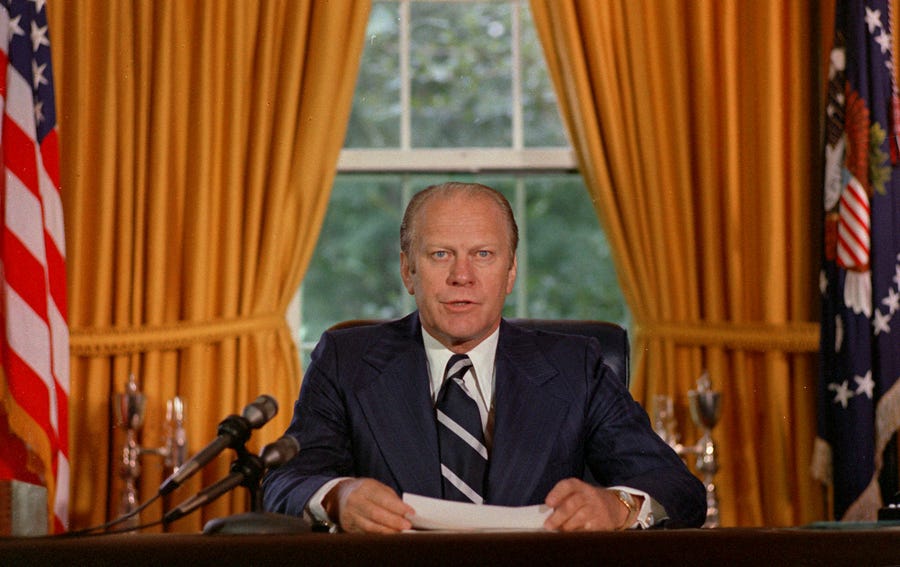 | | President Gerald Ford reads a proclamation pardoning Richard Nixon on Sept 8, 1974. | | AP | |
| Serving from 1974 to 1977, Gerald Ford was the 38th president of the United States. The Republican incumbent lost re-election to President Carter. |
| Following the resignation of President Richard Nixon after the Watergate scandal, Ford became the first unelected president in U.S. history. Ford's controversial pardon of Nixon had consequences — and many blame it (along with numerous issues including a poor economy and the fall of South Vietnam) to have cost him the presidency. |
Herbert Hoover |
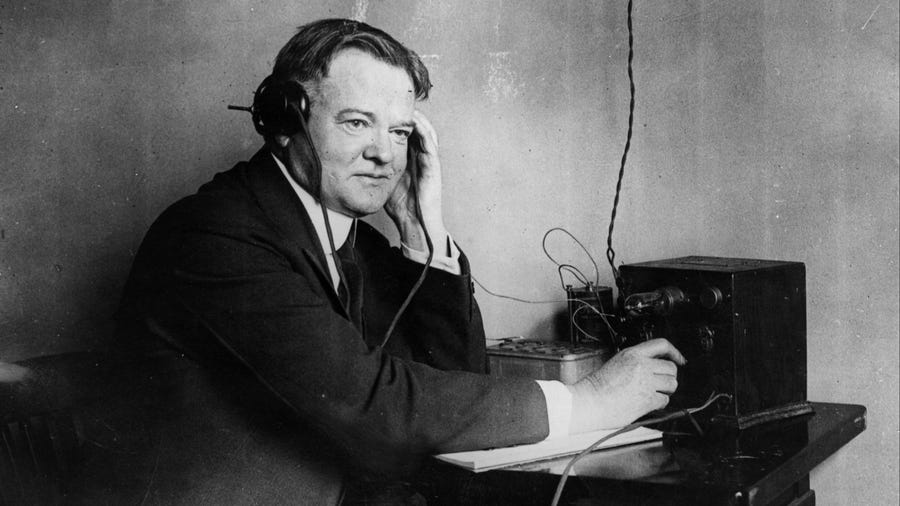 | | 17. Herbert Hoover • DJIA performance: -82.1% • Served from: March 4, 1929 - March 4, 1933 • Months in office: 48 • Party affiliation: Republican President Herbert Hoover presided over the worst economic downturn in U.S. history. Supported by rapid economic expansion in the 1920s, the stock market soared leading up to Hoover's presidency. However, by the end of the decade, unemployment and consumer debt began to rise, while productivity fell, and the fundamentals were no longer there. In October 1929, just eight months after Hoover took office, the bottom dropped out. The stock market plummeted in a massive selloff and continued to plunge for much of Hoover's presidency. Hoover's efforts to revitalize the economy by supporting financial institutions with government loans proved insufficient. The Dow Jones Industrial Average fell by a staggering 82.1% under Hoover. Due largely to poor economic conditions, Hoover was a single-term president, losing to Democrat Franklin D. Roosevelt by a landslide. | | Topical Press Agency / Getty Images | |
| Republican Herbert Hoover was the 31st president of the United States, serving from 1929 to 1933. He lost re-election to Democrat Franklin D. Roosevelt, who went on to complete three full terms. |
| Within months of Hoover's election, the stock market crashed — spiraling the country into the Great Depression. |
| "His opponents in Congress, who he felt were sabotaging his program for their own political gain, unfairly painted him as a callous and cruel President," reads his White House biography. "Hoover became the scapegoat for the Depression and was badly defeated in 1932." |
William Howard Taft |
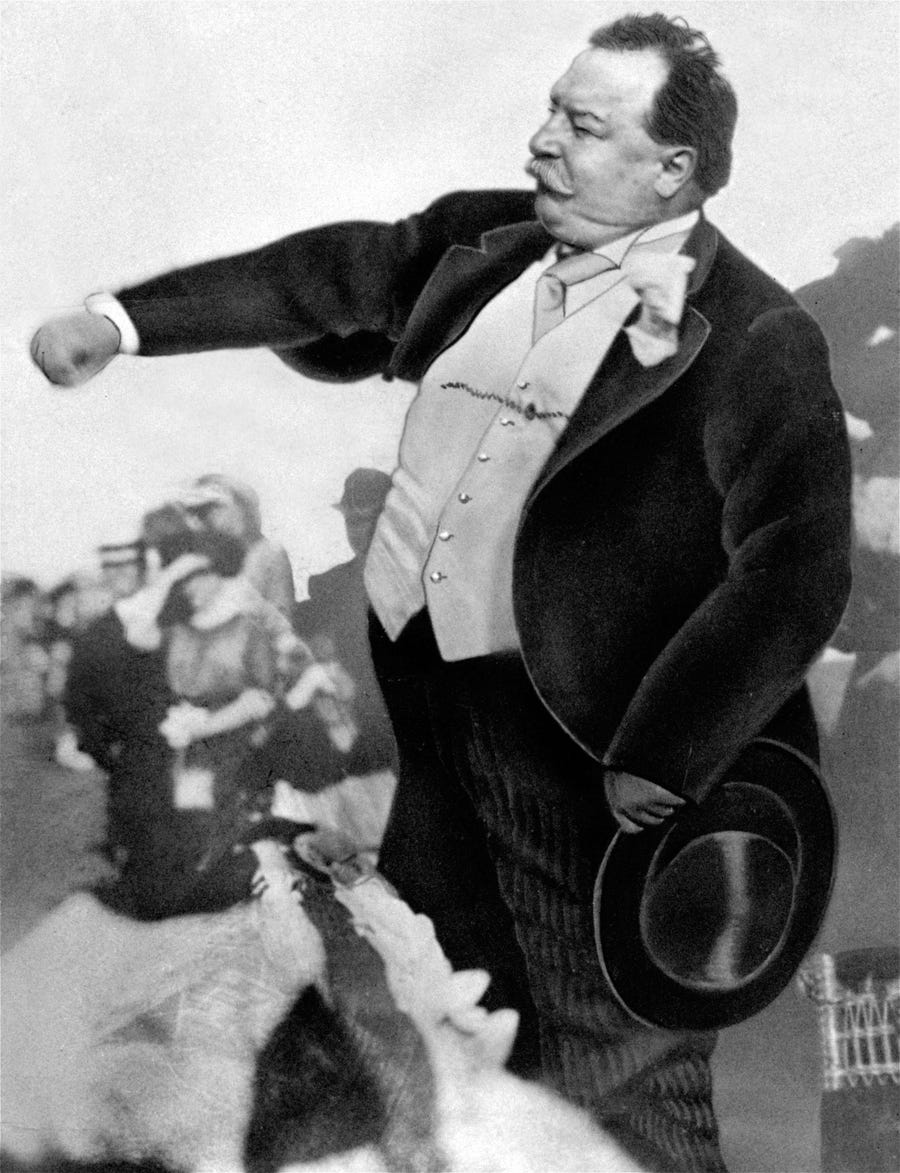 | | In this 1912 photo, President William Howard Taft is seen throwing out the first ball on opening day for baseball, to start the season for the Washington Senators in Washington. | | AP | |
| The 27th president of the United States, Republican William Howard Taft, served from 1909 to 1913. He lost his re-election campaign to Democrat Woodrow Wilson, who went on to complete two full terms. |
| According to Taft's biography, the president "alienated many liberal Republicans who later formed the Progressive Party." The party's divide ended his presidency. When Republicans renominated Taft in 1912, Roosevelt left to lead to Progressives, guaranteeing the election of Wilson. |
Martin Van Buren |
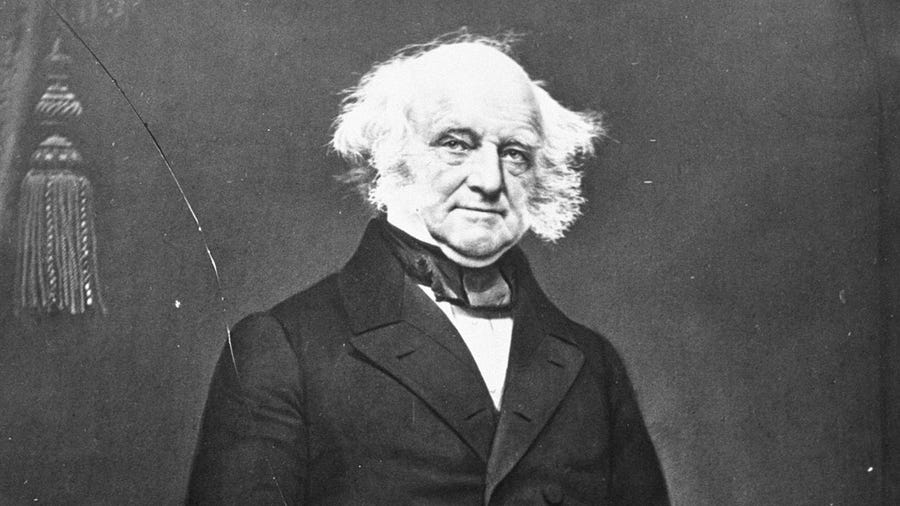 | | Martin Van Buren • Years served: 1837-1841 • Relationship with Congress score: 47.9 (16th lowest) • Crisis leadership score: 41.1 (9th lowest) • Party affiliation: Democratic-Republican Martin Van Buren was president during the financial panic of 1837. His debate with Congress over his proposal for the creation of an independent treasury, which passed, was so bitter it drove some Democrats into the Whig Party.Van Buren also supported cutting off all federal government expenses in order to keep the government running. | | National Archives / Newsmakers | |
| The 8th president of the United States, Democrat Martin Van Buren, served from 1837 to 1841. He lost his re-election campaign to William Henry Harrison of the Whig party, who died not long after taking office. |
| His biography points to the panic of 1837, where hundreds of banks and businesses failed — halting prosperity the country had witnessed in recent years. Van Buren "devoted himself to maintaining the solvency of the national Government," but his remedies prolonged the depression, and he lost reelection. |
John Quincy Adams |
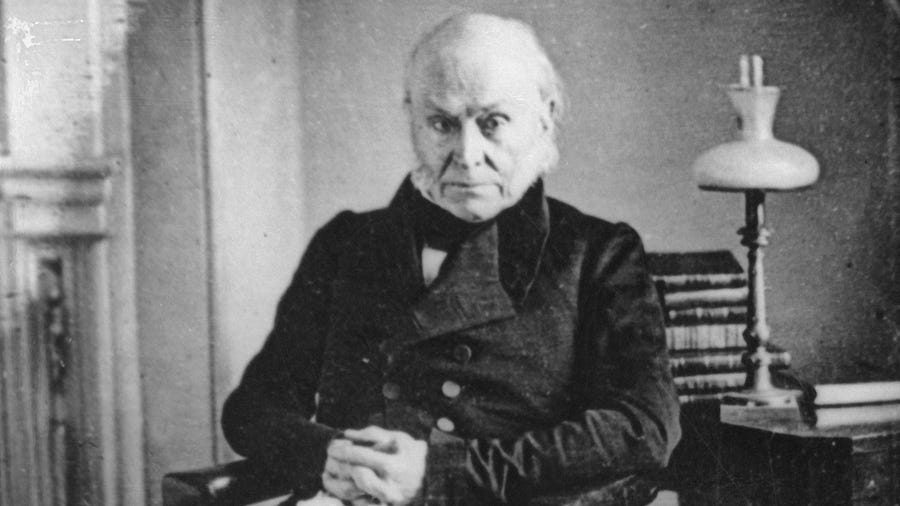 | | 6. John Quincy Adams (1767-1848) • Years served as president: 1825-1829 • Political party: Democratic-Republican • Surprising fact: Adams skinny dipped in the Potomac River daily. This early-19th century president didn't mind going for a dip in the Potomac River buck naked. It was a common way to bathe in rivers during that era. Evidently, a female gossip columnist sat on his clothes during one of his morning dips, and she refused to give them to him until he agreed to an interview. ALSO READ: The Net Worth of the American Presidents: Washington to Trump | | Henry Guttmann / Hulton Archive / Getty Images | |
| Serving from 1825 to 1829, John Quincy Adams of the Whig party was the 6th president of the United States. The incumbent lost re-election to Andrew Jackson of the Democratic-Republicans. |
| According to his White House biography, Adams' loss is attributed to Jacksonian opponents' accusations of corruption and public plunder — "an ordeal Adams did not easily bear." |
John Adams |
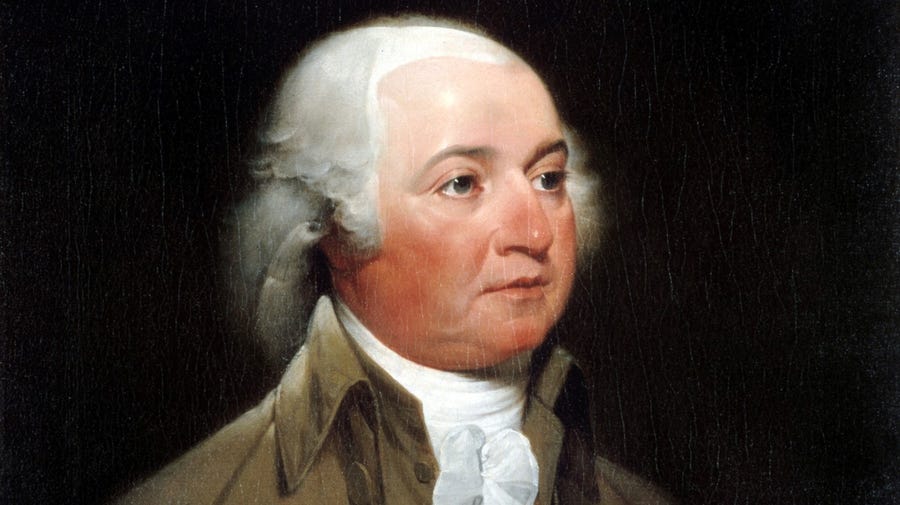 | | 2nd: John Adams • Est. peak net worth: $21.5 million • In office: 1797-1801 John Adams's wife, Abigail, was a member of the Quincys, a prestigious Massachusetts family, and a savvy investor, helping make herself and her husband wealthy. Adams owned a handsome estate in Quincy, Massachusetts. The estate, known as Peacefield, covered approximately 40 acres. He also had a thriving law practice. ALSO READ: America's 8 Presidents Who Went Broke | | iip-photo-archive / Flickr | |
| The first one-term president was John Adams. The Federalist incumbent served as the 2nd president of the United States from 1797 to 1801, but lost re-election to Democratic-Republican Thomas Jefferson. |
| "In the campaign of 1800 the Republicans were united and effective, the Federalists badly divided," Adams' biography reads, noting that Adams polled just a few electoral votes less than Jefferson. |
| |
| |
| |
| |
| |
| |
| |
| |
| |
| |
| |
| |
| |
| |
| |
| |
| |
| |
| |
| |
| |
| |
| |
| |
No comments:
Post a Comment